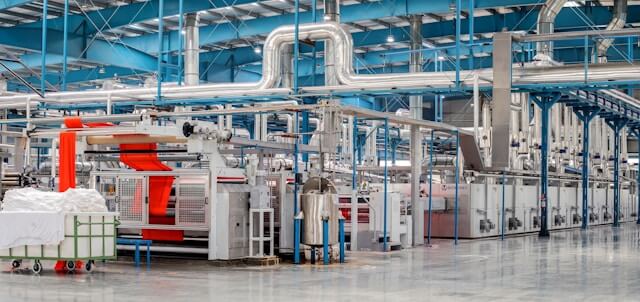When it comes to businesses, it’s usually B2C businesses that feel the most pressure to switch to more sustainable products, right? For the most part, this does seem to be known as a fact, as consumers want to support sustainable businesses. But that doesn’t mean that B2B businesses get off scot-free. In fact, it’s B2C businesses that are looking into B2B businesses for partnership, so of course, they’re looking for ones that are sustainable and want to help create a greener future.
Even when it comes to manufacturing-based businesses, there is also the expectation there, too. It’s vital for all businesses to embrace sustainability, and honestly, it’s no different for manufacturing-oriented businesses, either. They absolutely have the power to help out in creating a more eco-friendly future. So, if you’re an owner of one, then here’s exactly what you can do!
Start Off By Looking into Renewable Energy Sources
One of the most impactful steps manufacturing businesses can take to improve sustainability is to transition to renewable energy sources. In fact, this is something that is basically getting to become more of a requirement within this industry.
If you haven’t yet, it’s going to be a good idea to just go ahead and begin looking into investing in solar, wind, or hydroelectric power, as all of these can significantly reduce reliance on fossil fuels and lower greenhouse gas emissions associated with energy consumption. On top of that, you might even want to look into implementing energy-efficient technologies and practices.
Honestly, nowadays, this is incredibly easy, and it’s not that expensive (while yes solar power and other renewable energy sources have a high starting cost, not everything has this high upfront cost). So you might want to look into ways to cut resources or at least monitor them, such as getting a commercial tankless water heater sizing calculator, but this isn’t all either because there are other examples, such as getting LED lighting, efficient machinery, and optimized heating, or even a change in your HVAC systems. All of these can further enhance energy conservation efforts and reduce operational costs in the long run.
Try to Optimize Resource Management
In a way, this sort of piggybacks on what was said above. So, efficient resource management is essential for minimizing waste and conserving natural resources in manufacturing processes. It’s going to be super important to start adopting principles of lean manufacturing and implementing waste reduction strategies, such as recycling, reusing, and repurposing materials, which can help minimize environmental impact while improving operational efficiency.
But on top of that, it’s also going to be a good idea to just start exploring alternative materials and sustainable sourcing practices that can reduce reliance on virgin resources and promote circular economy principles, where materials are reused or recycled to minimize waste and maximize resource efficiency.
Look Into Reducing Water Consumption
This is not unlimited! Water truly is a precious resource, and manufacturing processes often consume large quantities of water for various purposes, such as cooling, cleaning, and production. Because it’s not infinite, it’s going to be so incredibly important to start implementing water conservation measures.
This can include examples such as optimizing equipment for water efficiency, capturing and recycling water for reuse, and implementing rainwater harvesting systems, which can significantly reduce water consumption and minimize environmental impact. Again, these are examples, but this is a resource that your business shouldn’t waste!
Start Collaborating with Supply Chain Partners
Can this one actually make a difference? Yes, absolutely, it can! This might not always be a cakewalk, but it’s going to help you out so much if you go ahead and start out by doing a collaboration with supply chain partners. In fact, you could even say that this is essential for improving sustainability across the entire value chain. Just think about it for a moment: most manufacturing businesses already work closely with suppliers and vendors, so why not focus on promoting sustainable sourcing practices?
This within itself can drastically help reduce environmental impact and drive positive change throughout the supply chain. There’s always room for improvement, so why not start here?
Invest in Sustainable Practices and Technologies
Even when it comes to your manufacturing business, there are some things you can control and others that you flat-out can’t control in the slightest. But one thing that’s incredibly important to keep in mind is the fact that investing in sustainable practices and technologies can drive innovation and enhance competitiveness while still reducing environmental impact.
It’s really going to help if your business just went ahead and began exploring opportunities to implement green technologies, such as advanced manufacturing processes, renewable energy systems, and efficient production equipment, to improve sustainability and operational efficiency.
The list could go on and on, really, but practice is another thing that needs to be highlighted. Nowadays, more companies (regardless of industry) are trying to put more of effort into fostering a culture of innovation and sustainability.
This can actually massively help out with empowering employees to identify opportunities for improvement and contribute to ongoing sustainability initiatives. Employees want to contribute to helping the world, making it a better place (a natural instinct), and allowing for innovation, which is so important.
